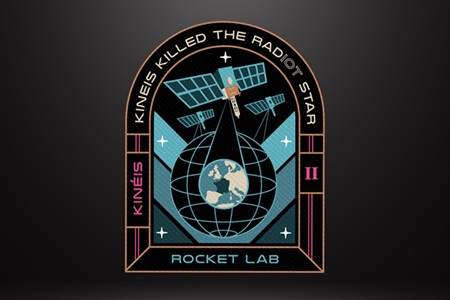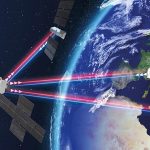The mission will be the second in a series of five dedicated Electron launches for Kinéis, designed to provide global Internet of Things (IoT) accessibility worldwide.

Rocket Lab has set the launch window for its 53rd Electron Launch. The mission will be the second of five dedicated launches for the French company Kinéis.
The ‘Kinéis Killed the RadIOT Star’ mission is scheduled to launch from Rocket Lab Launch Complex 1 in Mahia, New Zealand during a 14-day launch window that opens on September 17, 2024, NZST.
This mission will launch just three months after the ‘No Time Toulouse’ mission, Kinéis’ first launch with Rocket Lab. ‘Kinéis Killed the RadIOT Star’ will be the second of five dedicated Electron launches for Kinéis, a company backed by private and public investors including the French governments space agency CNES (Centre National d’Études Spatiales) and CLS (Collecte Localisation Satellites), an international space-based solutions provider, to improve global Internet of Things (IoT) connectivity.
Kinéis constellation will connect any object anywhere in the world and guarantee the transmission of targeted and useful data to users, in near-real time, with low energy consumption with more powerful 30kg-class nanosats that integrate IoT technology. The constellation also includes a second mission: a ship-tracking Automatic Identification System (AIS). Once deployed, these technologies will allow Kinéis to expand across multiple industries and scale from 20,000 devices connected to millions. The second constellation launch will add an additional five new satellites to its planned 25 and will enhance Kinéis’ ability to connect the planet and address essential challenges for humanity, its activities, and its environment.
“We’re excited to welcome the Kinéis team on board Electron again as we help them build out their constellation,” said Rocket Lab founder and CEO, Sir Peter Beck. “Dedicated launch is key for the kind of precise orbital deployment requirements many constellation operators need, so we’re proud to make that possible once again.”
“The Kinéis teams are ready to build on the success of the first launch. They have capitalized on this first and delicate technical experience of putting our first five satellites into position and are delivering a real technical performance in managing the five new satellites simultaneously, in addition to the five already in the air,” added Alexandre Tisserant, Chairman of Kinéis. “Rocket Lab’s Electron launcher made a major contribution to this success, thanks to the precision with which it injected our nanosatellites into their positions. The IoT revolution is underway. Thanks to our space-based connectivity, we’ll be able to connect any object anywhere in the world in near real-time. Go Kinéis!”
The ‘Kinéis Killed the RadIOT Star’ launch has been tailored specifically to meet Kinéis’ mission requirements, giving them greater control over the launch schedule, orbit and deployment parameters than would be possible on a larger rideshare mission.













































































